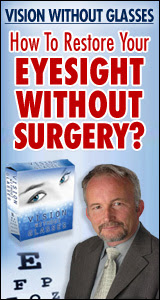Prescription Drug Safety: What Every Patient Needs to Know

Prescription medication is a huge and growing industry in the United States. Big Pharma, as it’s known, is so huge that the U.S. is the largest market for pharmaceuticals in the world.
The development of prescription drugs has come many benefits and drawbacks. While some medications save and prolong life, many people believe we’re becoming overly dependent on prescriptions, which creates a number of safety concerns. Natural medications are a viable alternative in some cases, but sometimes the only option is a prescription drug. When that’s the case, patients need to take precautions to protect their safety.
Know What Pills You Are Taking
Most people rarely think to check the prescription medication they’re given at the pharmacy. Unfortunately, that could be very risky. Some pharmacies handle hundreds of prescriptions in a day, and there’s always a possibility of an error occurring.
[do_widget id=text-16]
It’s always best to double check your pills to make sure your prescription is correct even if it’s a regular monthly prescription. Using a pill identifier by number is the safest way to check a prescription medication. Pills can also be identified by name, shape, color or special symbols.
Know the Possible Side Effects
Before taking the first dose, you should be fully aware of all potential side effects. For example, few people realize SSRI antidepressants increase the risk of intracranial hemorrhage. And it’s just one of the possible life-threatening side effects.
Your doctor should explain all of the benefits and risks associated with a prescription medication. Most of the time they’ll put emphasis on the most common side effects, but all of them should be discussed. If there’s anything that could increase the risk of side effects your doctor will make this known as well. When you pick up your medication you can also ask the pharmacists for information on possible side effects and what to watch out for. Always ask which side effects warrant immediate medical attention.
Take Medications Exactly as Prescribed
It’s no secret that the country is in the middle of a prescription painkiller epidemic. Thousands of people who are prescribed pain medications end up misusing the drug and quickly become addicted.
Because prescription painkillers are legally manufactured and prescribed by doctors, many people fail to realize they are powerful opioids. They are close cousins to heroin, which is why many painkiller addicts move on to using heroin. Health experts are now very vocal about the fact that increased use of prescription pain medications is directly linked to the uptick in heroin use and overdoses.
When painkillers are used as prescribed the risk of addiction is extremely low. It’s not until the pills are misused that addiction can end up taking hold. Always follow the medication directions exactly as they’re written. If you have a question or accidentally miss a dose call your healthcare provider for guidance. You’ll also need to talk to your doctor about scaling back doses as quickly as possible to minimize the chance of dependence.
Some people, particularly older individuals or those with chronic illnesses, take numerous pills a day. As you can imagine, trying to keep them all in order can be difficult, but it’s absolutely necessary.
A pill organizer is a cheap, effective way to manage prescription medications. It’s a small box with an individual compartment for each day. Some pill organizers even have numerous compartments for each day. At the start or end of each week, you can use the pill organizer to arrange each dose so it’s easier to remember what pills to take at a specific time or day.
Always Keep Prescription Medication Bottles
If you do decide to use a pill organizer, keep the prescription medication bottle. The bottle contains vital information that may be needed as a reference or to look up information.
Safely Store Prescription Medications
Many times the person prescribed medication isn’t most at risk. Children, pets and people with cognitive impairment can all accidentally consume a prescription medication, which can have dire consequences.
All prescription medications should be kept in a secure place that’s out of sight and not within reach of small children. Whenever possible keep prescription drugs in a cabinet or drawer that can be locked. Most pills also need to be stored in a cool, dry area to maintain integrity.
Safely Discard Prescription Medications
It’s equally important to safely discard unused prescription medications. If not they could end up in the wrong hands or contaminate the local environment and water sources.
First, check to see if any local pharmacies, police departments, waste management authorities or government agencies have a medication take-back program. This is the simplest, securest option. You can also contact authorized collectors that are registered with the DEA.
If there are no disposal services or collectors in your area look at the label for disposal directions. Drugs without specific disposal directions can usually be thrown out in the trash. To do so safely, mix the pills in a sealable bag with dirt or another filler. A small number of medications can also be flushed, which should be indicated on the bottle.



